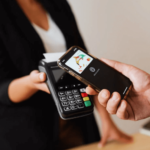In this digital age, people prefer to use their smartphones over desktop computers. Online customers, especially those in the millennial bracket, are increasingly turning to mobile applications for purchases and other applications. Smart businesses should make their e-commerce sites mobile-friendly to reach this market.
With the increased use of mobile applications, however, the risk of cyber attacks is also on the rise. Protecting your business and customers from hackers is critical to their safety and your survival. Here are some ways to ensure that your mobile applications are secure.
1. Run an Android Pentest
Android programs are particularly vulnerable to cyber-attacks. Android penetration testing will analyze your mobile software applications to detect any vulnerabilities.
Android pentesting best practices include taking a careful look at the coding as well as the program itself before running it as well as executing that program in real-time to check for any vulnerabilities.
2. Encrypt Your Source Code
If your code isn’t encrypted, mobile malware will search out the vulnerabilities in your applications. Hackers are then able to copy your code and upload a pseudo-app to other third-party stores to lure in unsuspecting users and steal their information. When developing applications, make sure the source code is encrypted to protect your customers and your brand’s reputation.
3. Invest in a Virtual Private Network Tunnel
A VPN tunnel provides a connection that is encrypted between the server and the app. Having one connected with your app ensures that the data your users enter is secure.
4. Insist on Strong Passwords
Encode your app so that it only accepts a strong password. That way your users will be protected from hackers. Also, require your users to change their passwords regularly. Provide for biometric authentication to add an extra layer of precaution if your users are entering extremely sensitive data.
5. Keep Updated With the Latest Security Algorithms
The online world is in constant flux, and the need to update your cryptography regularly is crucial. Continually educate yourself about the newest methods and do regular penetration tests to ensure your applications are safe.
6. Avoid Storing Too Much Sensitive Data
Some programs make it easier for the user to store data in the device’s local memory, but that poses a security risk. Use key chain or encrypted data containers instead. Also, consider adding an auto-delete function that will delete data after a length of time that you specify.
7. Watch the Backend
An application’s frontend is everything the user sees and works with. The backend is the behind-the-scenes portion of the application. The backend includes the app’s design and other important content. Develops often design apps to store data in the backend of an application. Cyber criminals love attacking the backend of an app to mine critical and sensitive user data. Backend security is crucial to protect your customers.
As a mobile app developer, you naturally care about your users and want to protect their data. Taking these security measures will help keep your customers safe.





